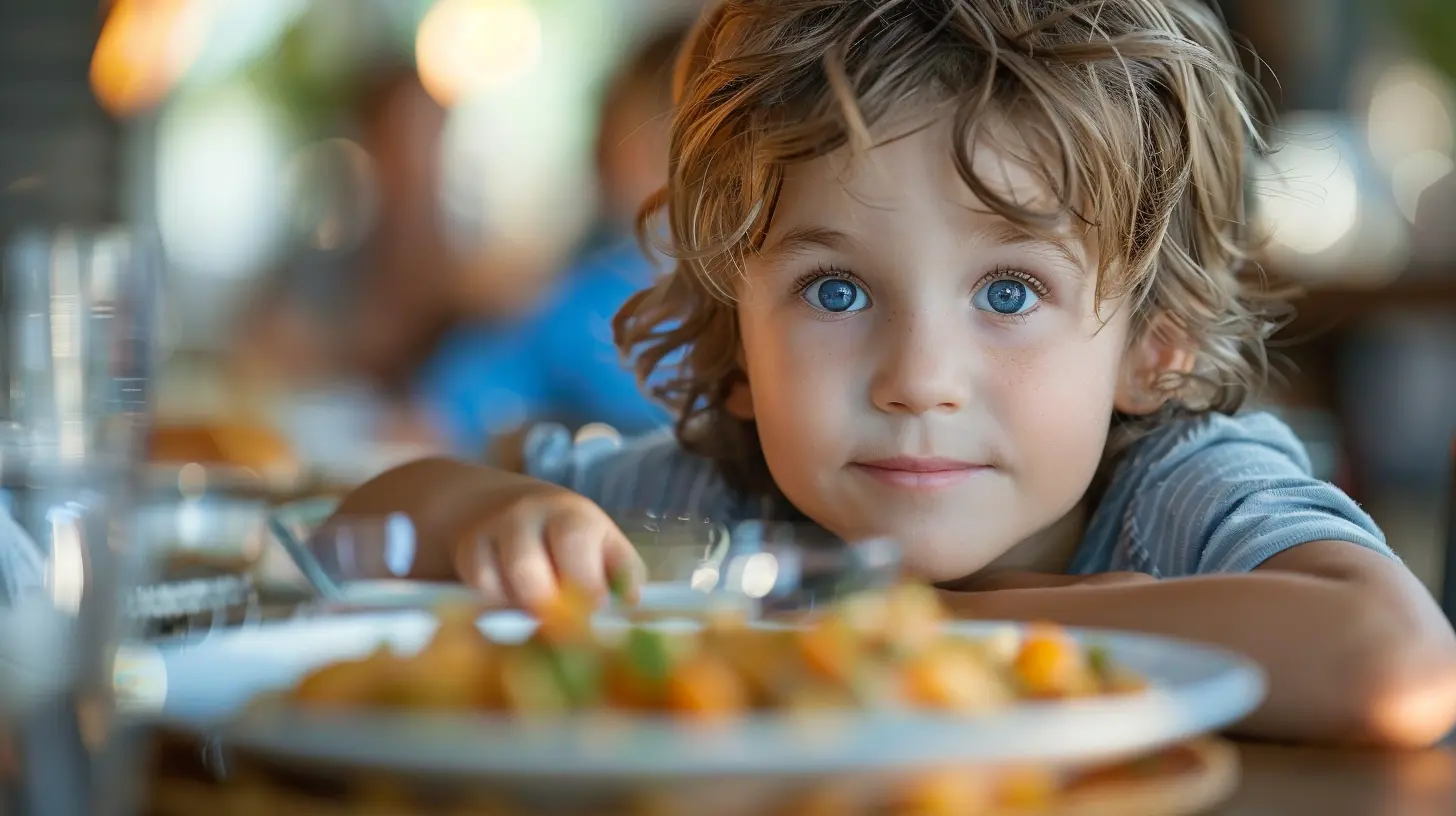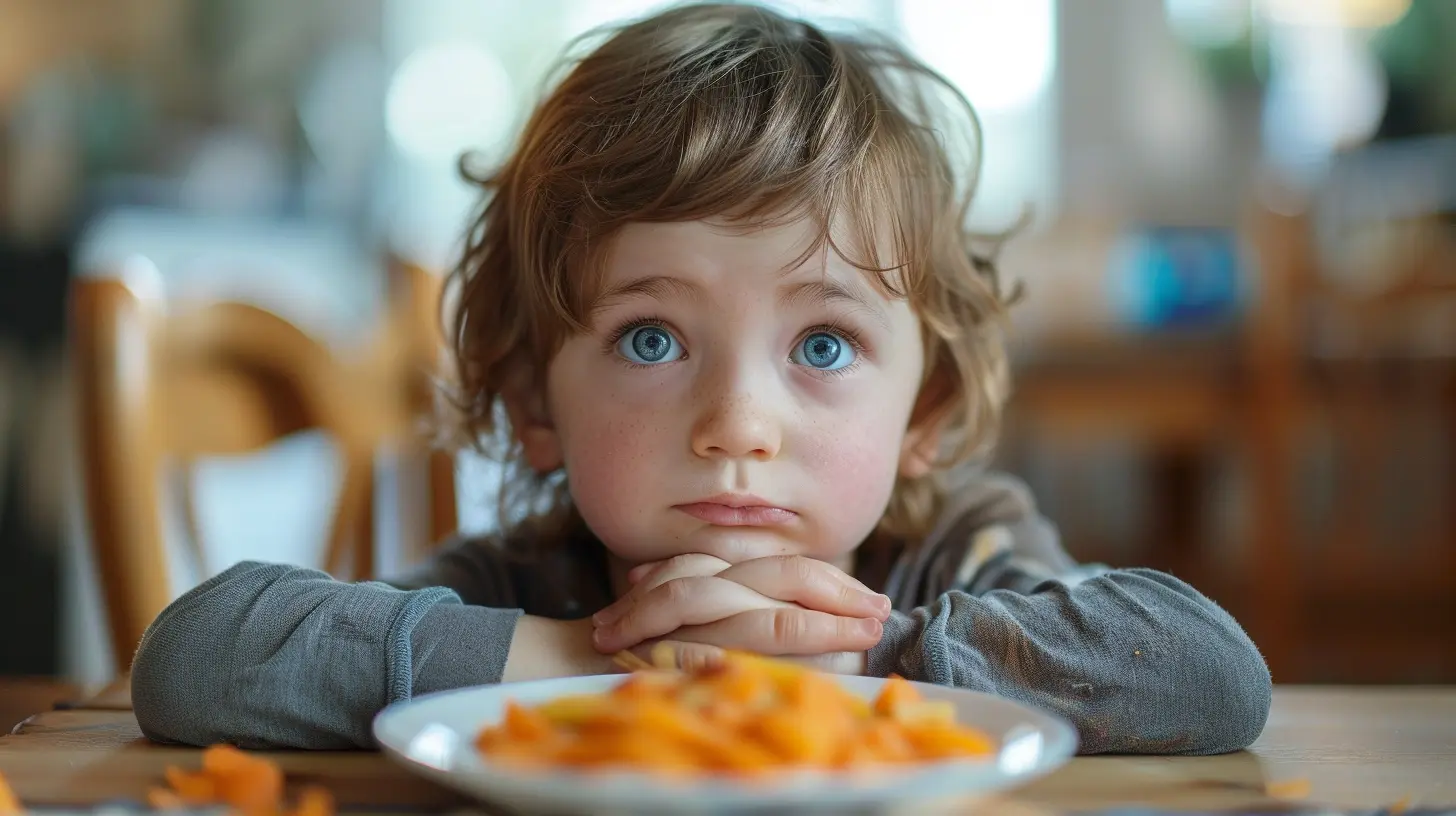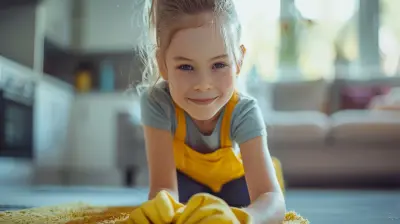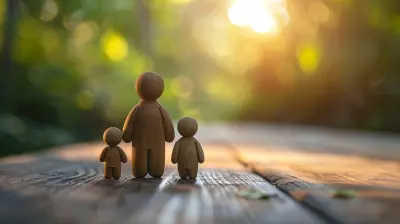How to Raise Grateful Children in an Age of Entitlement
15 April 2025
Raising children in today’s world feels like going up against a tidal wave of entitlement. We’re living in a society where instant gratification is the name of the game, and teaching gratitude feels like trying to grow a plant in the middle of a desert. Sound familiar?
But here’s the thing: Gratitude is more than just saying “thank you” when someone hands you a cookie. It’s a mindset, a way of seeing and appreciating all the good things life gives us — big or small. And yes, even in an age of smart devices, social media, and next-day shipping, it is possible to raise kids who are grounded, thankful, and yes, grateful.
So, how exactly can we teach gratitude when the world seems to be teaching entitlement? Let’s break it down — from the small, daily tweaks to the big, foundational lessons that will help your child grow into a person who doesn’t just expect, but appreciates.

Why is Gratitude So Important?
Before we dive into the nuts and bolts of raising grateful kids, let’s quickly chat about why gratitude matters in the first place. It’s not just about politeness—sure, it’s nice when your child acknowledges kindness, but the benefits go way deeper.Gratitude helps kids develop a healthy mindset. It nurtures positive emotions, encourages empathy, reduces stress, and helps them find joy in everyday life. Studies even show that people who practice gratitude tend to be more resilient, have stronger relationships, and enjoy better mental well-being.
Not bad, right? So, how do we cultivate this in our children, especially in a world that often screams, “More, more, more!”
The Challenges of Raising Grateful Kids Today
Let’s face it – parenting in the digital age comes with its own set of challenges.1. Fast-Paced Consumer Culture: Instant gratification is everywhere. From one-click shopping to binge-watching entire seasons of TV shows in a weekend, kids are used to getting what they want, now. This can create an illusion that everything in life is quick and easy to obtain, which isn’t exactly conducive to fostering gratitude.
2. Social Media Influence: Social media sets unrealistic expectations. Kids are constantly exposed to the highlight reels of other people's lives, leading them to believe that everyone else has more – more toys, more vacations, more fun. This can easily breed feelings of jealousy or entitlement rather than gratitude for what they have.
3. Entitlement from Overindulgence: We all want to give our children the best, but sometimes in our attempts to provide, we may accidentally overindulge. When children get too much without having to earn or appreciate it, they can develop a sense of entitlement — thinking they “deserve” things without effort.
So, What Can You Do?
Hang tight, because this is where things get interesting. While challenges abound, there are numerous ways to nurture gratitude in your children, even in an environment that fosters entitlement. Let’s break it down step by step with practical tips you can start implementing today.
1. Be a Gratitude Role Model
Children are like little sponges, soaking up everything around them — including your attitude. If you want your kids to be grateful, you’ve got to model it yourself. It all starts with you. Do you regularly express thankfulness for both big and small things in your life?When you’re at the dinner table, take a minute to talk about one thing you’re grateful for that day. Whether it’s the sunny weather or that you managed to nap while the baby slept (trust me, we all count that as a win), your kids will see that gratitude doesn’t require something extravagant.
Tip: Make it a habit to say “thank you” and “please” in front of your kids. If you get a coffee from a barista, say thanks. If your partner does the dishes, show appreciation. Gratitude is contagious!
2. Teach Contentment Before Gratitude
It’s hard to feel grateful when you’re always chasing the next best thing. Teaching your children to be content with what they have is a building block for gratitude.One effective way to do this is to shift the focus from “stuff” to experiences and relationships. Instead of indulging every whim for a new toy or gadget, try emphasizing activities that foster togetherness and joy, like playing a board game, going to the park, or baking cookies.
Reality check: No, this isn’t about depriving them, but it’s about helping them realize that happiness doesn’t always come from having more stuff. The newest gadget makes them happy for five minutes – their relationship with you lasts a lifetime.
3. Encourage the ‘Thank You’ Habit
We’ve all been there. Grandma gives your child a present, and instead of showing off those beautiful manners you’ve been trying to instill, they rip open the gift, toss it aside, and go, “Is there more?” Cringe.While it’s great if they can say “thank you” without a nudge, gratitude doesn’t always come naturally. That’s where practice comes in. Encourage them to say thank you, even for the little things — the meal you made, the ride to school, or a small favor from a friend.
Pro tip: Create a ‘Gratitude Jar’ at home. Every time something good happens, write it on a little slip of paper and drop it in the jar. Not only does this encourage a sense of thankfulness, but it also creates a lovely keepsake for your family to look back on during the holidays or when someone’s having a rough day.
4. Limit Screen Time and Materialism
One of the main things fueling entitlement in kids today is the amount of screen time they’re exposed to. Ever notice how, after watching a few YouTube videos or scrolling through Instagram, kids suddenly “need” the latest toy or trendy sneakers?By limiting screen time, you’re also limiting the exposure to advertising and influencer culture, which can be breeding grounds for entitlement and dissatisfaction.
Instead, help your child engage in creative play, read books, or spend time outdoors. When children learn to find joy outside of their devices, they experience life in a richer and more balanced way.
5. Teach Empathy Through Volunteering
When children see how other people live — particularly those who may be less fortunate — they start appreciating what they have and develop a sense of empathy. Volunteering as a family provides a powerful hands-on experience that cultivates compassion and gratitude.Whether it’s volunteering at a local animal shelter, participating in food drives, or visiting nursing homes, these experiences expose children to different walks of life. It helps them realize how lucky they are and, in turn, encourages gratitude.
Bonus: Let them lead the way. If they’re excited about helping animals, research animal shelters together. If they’re more into the environment, look for local clean-up efforts. When children feel involved in the process, they’re more likely to reflect on the experience positively.
6. Give Them Responsibilities
Gratitude is connected to hard work. When children experience the effort that goes into something, they learn to appreciate the outcome much more. This could be as simple as letting them help with age-appropriate chores around the house.When kids contribute to family tasks — like setting the table, cleaning up their room, or helping with the groceries — they start to understand that everything worth having requires some work.
Fact: Kids are more likely to appreciate the pizza that’s on the table when they’ve helped set the table or prepare the dough.
7. Encourage Thank-You Notes
Handwritten notes may seem old-fashioned, but they are a fantastic way to teach children how to express gratitude in a thoughtful way. After birthdays or holidays, encourage your child to write thank-you notes to friends or family members who gave them gifts or went out of their way to make them feel special.This small act not only helps solidify the habit of gratitude but also brings a personal touch that a simple “thanks” text message can’t always convey.
8. Manage Expectations, Especially Around Holidays
Birthday parties, Christmas mornings, and other celebrations can sometimes turn into a marathon of gift-opening, with kids barely pausing to appreciate each one. Set expectations beforehand. Remind your child that it’s not about the quantity of gifts but the thought and love behind each one.Encouraging them to reflect on what they already have before asking for more can also help combat the “gimme” mentality.
9. Be Patient and Consistent
At the end of the day, teaching gratitude isn’t a one-off lesson. It’s something that needs to be woven into the fabric of your daily life — and it takes patience. There will be moments when your kids forget to say thanks or take something for granted. Don’t get discouraged.The key here is to be consistent. Like learning to ride a bike or mastering a new skill, gratitude takes time to grow. Keep at it, trust the process, and remember, you're planting seeds that will eventually bear fruit.
Final Thoughts
We live in a world where entitlement seems to thrive, but that doesn’t mean it’s impossible to raise grateful children. By being a role model, teaching contentment, and encouraging empathy and responsibility, you can help your kids see the value in what they have and foster a deep sense of gratitude.And remember, you don’t have to be perfect. As parents, we’re all learning as we go. Patience, consistency, and plenty of love will go a long way in helping your children grow into grateful, kind human beings.
all images in this post were generated using AI tools
Category:
Teaching GratitudeAuthor:

Max Shaffer
Discussion
rate this article
5 comments
Kaitlyn McGonagle
Gratitude blooms in hearts.
May 5, 2025 at 2:23 PM

Max Shaffer
Absolutely! Fostering gratitude helps cultivate a mindset that appreciates what we have, countering entitlement.
Talis Benton
Great article! It's so important to instill gratitude in our kids, especially with all the distractions around. Simple practices like thank-you notes and family gratitude jars can really make a difference. Thanks for the tips!
April 27, 2025 at 3:00 AM

Max Shaffer
Thank you for your kind words! I'm glad you found the tips helpful. Instilling gratitude truly makes a lasting impact!
Colton McCune
I love this topic! It’s intriguing how gratitude shapes our children's perspectives. I'm curious about practical strategies that can be seamlessly integrated into everyday life. How do we balance teaching appreciation without making it feel like a chore? Looking forward to exploring ideas that foster genuine gratitude in our kids!
April 25, 2025 at 4:37 AM

Max Shaffer
Thank you for your enthusiasm! To foster genuine gratitude without it feeling like a chore, try incorporating gratitude into daily routines, like sharing what we're thankful for at dinner. Making it a fun and regular practice helps children appreciate the value of gratitude naturally. Looking forward to sharing more ideas!
Paul McGarvey
Gratitude starts at home.
April 22, 2025 at 3:17 PM

Max Shaffer
Absolutely! Modeling gratitude within the family is essential for instilling these values in children.
Starla Carrillo
Gratitude: teach it, don’t just preach it!
April 16, 2025 at 3:52 PM

Max Shaffer
Absolutely! Teaching gratitude through daily actions and examples is essential for instilling true appreciation in children. It's all about modeling the behavior we wish to see!




